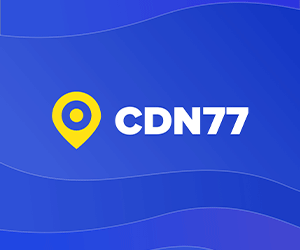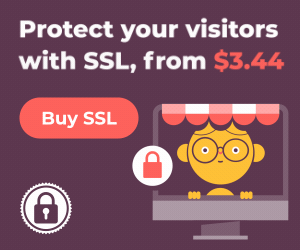SSL Certificate refers to Secure Sockets Layers. It means the connection between the user computer and the server is private. So, the data sent between them are encrypted. SSL certificates have a key pair: a public and a private key. These keys work together to establish an encrypted connection.
SSL certificates are small data files that encrypt data packets as they are sent through the Internet. SSL is often used to transfer data logins and credit card information online.
A website that has an SSL certificate ensures all website traffic between your web server and user’s browser is secure and cannot be read. When your website has an active SSL certificate the application protocol changes from HTTP to HTTPS.
As you probably know, there are two types of SSL certificate. The first one is ‘Free SSL Certificate’, which as the name suggests is available for free. The other one which is paid is simply known as ‘SSL Certificate’. Let’s have a closer look at both.

What is a Free SSL Certificate?
As the name implies, these certificates don’t have a price tag attached to them. The purpose of making an SSL certificates available free of cost was to make the access to HTTPS available for all websites.
Free SSL certificates fit into two categories. ‘Self-Signed Certificates’ are the ones in which there is no need for any Certificate Authority to sign them. They are signed by the issuer him/herself. On the other hand, the second type of free SSL certificate available in the market is signed by a Certificate Authorities (CA). As far as the level of encryption is concerned, a free SSL certificate provides the same level of encryption as the paid ones.
Paid SSL Certificates
To equip a website with these certificates, one must pay for it. A paid certificate is issued and signed by a trustworthy certificate authority (CA). You either get it directly from the Certificate Authority’s website or you can purchase it from 3rd party entities called ‘Resellers’.
As far as the level of encryption is concerned, a free SSL certificate provides the same level of encryption as a paid one. Now you must be wondering, ‘why should I pay for the same certificate when you can get it for free?’
Well, there are some major differences between the two.
Key Differences Between Free SSL and Paid SSL
- Type of SSL Certificate
Free SSL certificates only come with a Domain Validation (DV) option. DV certificates are used only for providing a basic level of authentication. Usually, they are used for platforms such as small websites and blogs. Free SSL certificates don’t have the provision for Organization Validation (OV) and Extended Validation (EV) certificates. Whereas the paid SSL certificates do come with OV & EV options, which are absolutely necessary for protecting business websites.
- Level of Validation
When it comes to verifying a website owner’s business details before issuing a free certificate, CA does not validate anything apart from the identity of the website owner. While in the case of paid SSL certificates, verification of the identity of the website owner is a must before issuing the certificate to the site owner and in the case of OV & EV certificates, in-depth verification of the business is carried out by the certificate authority (CA).
- Validity Period
Free SSL certificates provided by popular CAs is issued for 30-90 days. As a result, the website proprietor must renew the certificate every 30-90 days. In the case of paid certificates, they can be issued for a period of 1-2 years.
- Support
The certificate authorities (CAs) and resellers of paid certificates are committed to providing round the clock support to their customers. Those customers get to choose whichever type of support they want, be whether its chat, email or call. On the other hand, free CA’s don’t assist their customers with such remarkable support because they can’t afford to. If you need help with an issue regarding free SSL, you’re going to have sift through a bunch of old forum posts to find it.
- Level of Trust
As mentioned earlier, the free certificates assist with domain level validation only. If one wants to get OV and EV certificates, he/she has no option but to go with paid SSL certificates. With OV & EV certificates comes visual indicators such as the green address bar and better site seals. Whereas, free SSL certificates don’t deliver such privileges. It has been proven time and time again via research that the chances of a customer buying from you increase significantly with a green address bar and well placed site seals.
- Warranty
With a free SSL certificate, if anything goes wrong on the CA’s end – like, a catastrophic failure of their PKI for instance – you are completely out of luck. Paid SSL certificates don’t have this issue, because they come backed by warranties that pay out anywhere between 10 grand and 1.75 mil.
Conclusion
Today, web security has become a matter of ‘No Compromise’ and SSL certificates offer a great helping hand to site owners. There is no denying that free SSL certificates represent a great option for many, but as discussed above, they come with constraints. They are an ideal choice for someone who wants to secure his/her blog or even a small website. But when it comes to real business, there is not much to think about, is there? If the free SSL certificates were appropriate then all the leading e-commerce websites would be using them, right? But they don’t and there are plenty of reasons for it. Paid SSL certificates can help accelerate conversion rates on websites by implanting an element of trust in the customer’s mind which ultimately escalates revenues. Although you must pay a bit for it up front, you will surely savor the fruits later. After all, no good thing comes for free…right?
Bijay Pokharel
Related posts
Recent Posts
Advertisement
Subscribe

Cybersecurity Newsletter
You have Successfully Subscribed!
Sign up for cybersecurity newsletter and get latest news updates delivered straight to your inbox. You are also consenting to our Privacy Policy and Terms of Use.









